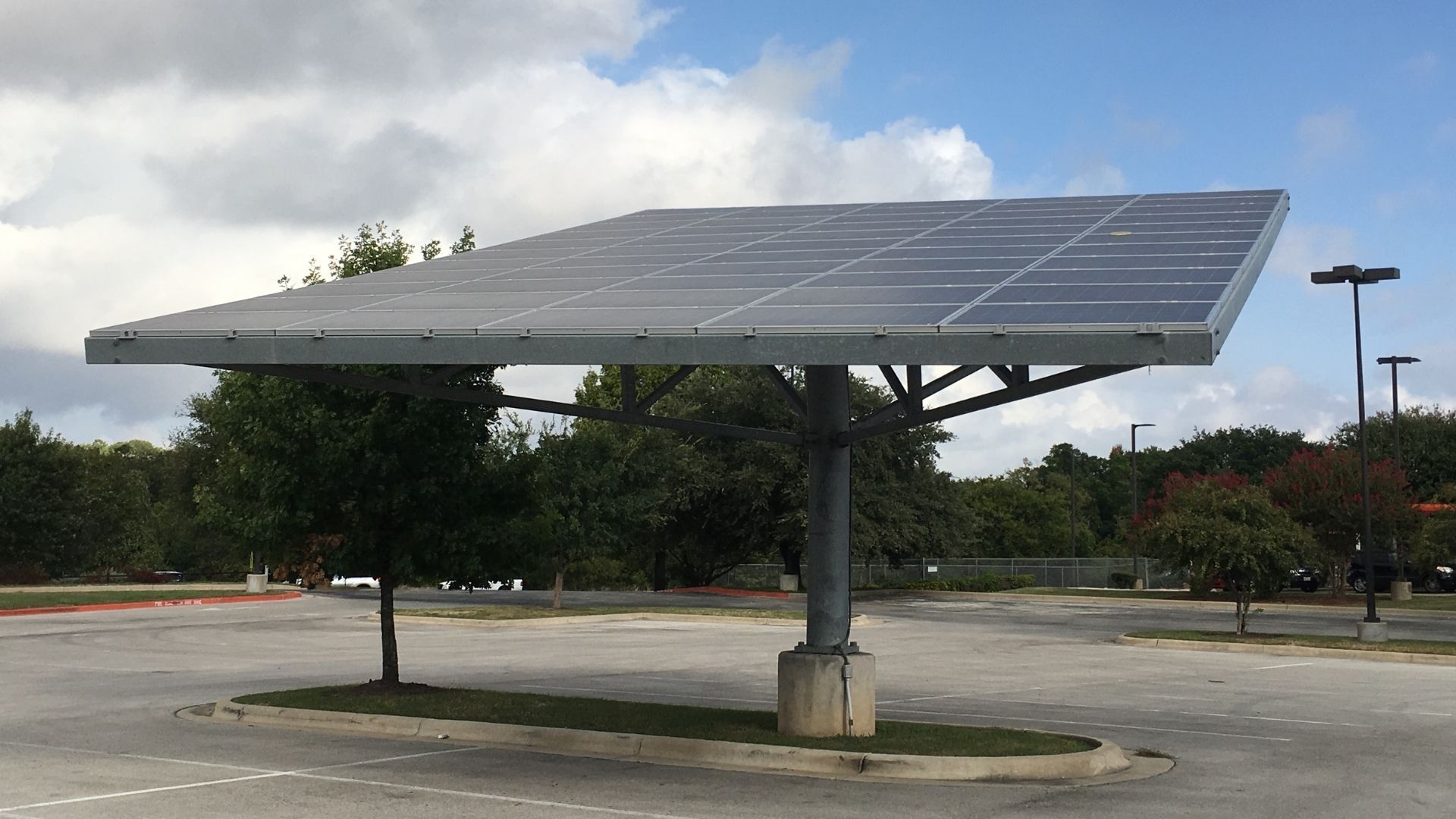Abbotsford Solar Installation
Top Solar Companies Near Me in Canada | Best Solar Providers
The global shift towards clean energy is gaining remarkable momentum, with an increasing focus on renewable sources such as solar power. As individuals and nations recognize the urgency of reducing carbon emissions and embracing sustainable energy solutions, searching for the best solar companies near you has become a significant priority.
In this context, Canada is a shining example of a country wholeheartedly embracing renewables. With its vast landmass and abundant sunlight resources, Canada has positioned itself as an ideal environment for solar energy generation. The country has witnessed a surge in solar companies offering innovative solutions for residential, commercial, and utility-scale installations.
Supported by proactive government policies and incentive programs, the Canadian solar industry has experienced substantial growth, leading to increased investments, job creation, and a thriving market for clean energy solutions. As a result, individuals and businesses across Canada have a wide range of reputable solar companies near them, ensuring high-quality products, professional installation services, and ongoing support.
Exploring Solar Panel Installation Companies
Local solar companies are important in driving renewable energy adoption and facilitating the clean energy transition. These companies are often deeply rooted in their communities, with a comprehensive understanding of the local energy landscape and their customers' specific needs and challenges. The significance of local solar companies lies in their ability to provide personalized, reliable, and efficient solar solutions tailored to the unique requirements of their region.
To ensure a beneficial and significant contribution to the clean energy transition, various aspects should be taken into account when looking for solar enterprises in Canada:
Experience and Expertise:
Look for solar companies with a proven track record and extensive experience designing and installing solar systems. Consider their expertise in residential and commercial projects and their knowledge of local regulations and incentives.
Certification and Accreditation:
Check if the solar company holds relevant certifications and accreditations. Look for certifications like the North American Board of Certified Energy Practitioners (NABCEP) or membership in industry associations to ensure professionalism and adherence to industry standards.
Customer Reviews and References:
Research customer reviews and seek references from past clients to gauge the company's reputation and the quality of their work. Positive feedback and recommendations indicate a reliable and trustworthy solar company.
Comprehensive Services:
Evaluate the range of services provided by the solar company. A reputable company should offer comprehensive services, including system design, installation, maintenance, and support, ensuring their customers a seamless and hassle-free experience.
Quality Products and Warranties:
Inquire about the solar panels and equipment used by the company. High-quality products with reliable warranties ensure long-term performance and peace of mind.
Customized Solutions:
Assess the company's ability to tailor solar solutions to meet your energy needs and budget. A reputable solar company will thoroughly assess your property and energy requirements to provide a customized and optimized solar system.
Financing Options:
Inquire about financing options available through the solar company. Look for companies that offer flexible financing solutions, such as solar loans or leasing programs, to make the transition to clean energy more affordable and accessible.
Local Presence and Support:
Consider the company's local presence and proximity to your area. Local solar companies can provide prompt support, maintenance, and warranty services, ensuring ongoing customer satisfaction.
Challenges In Embracing Renewables In Canada’s Commercial Solar Company
Canada's current energy landscape is diverse, combining traditional and renewable energy sources. Canada has traditionally relied on fossil fuels, particularly oil, gas, and hydroelectric power, for its energy needs. However, in recent years, there has been a growing shift towards renewable energy sources driven by environmental concerns, climate change mitigation efforts, and the decreasing costs of renewable technologies.
Renewable energy in Canada is primarily hydroelectric power, which accounts for most of the country's renewable electricity generation. Canada has abundant water resources, making it a global leader in hydroelectric power generation. Wind power has gained traction in some provinces, with Canada having significant wind energy potential. Solar power is also experiencing steady growth, particularly in regions with high solar irradiation.
Canada faces a number of difficulties and obstacles in its transition to a cleaner and more sustainable energy landscape, notwithstanding its advances in adopting renewable energy. These challenges include:
1. Regional Variation:
Canada's vast size and regional variations in energy resources and demand present challenges in coordinating and implementing a national renewable energy strategy. Each province and territory has different renewable energy potentials, policies, and regulatory frameworks, making it challenging to have a cohesive approach.
2. Infrastructure and Grid Limitations:
Integrating large-scale renewable energy into the existing grid infrastructure poses challenges. Upgrading and expanding transmission and distribution infrastructure is necessary to support increased renewable energy generation and ensure a reliable and resilient grid.
3. Cost Competitiveness:
Although the costs of renewable energy technologies have decreased, they still face challenges competing with fossil fuel-based energy sources, particularly in regions where fossil fuels are abundant and inexpensive. Addressing cost competitiveness is crucial to driving further renewable energy adoption.
4. Intermittency and Storage:
Renewable energy sources such as wind and solar are intermittent, depending on weather conditions. This intermittency poses challenges for grid stability and necessitates the development of effective energy storage solutions storing excess energy for use during periods of low generation.
5. Indigenous and Community Engagement:
Meaningful engagement with Indigenous and local communities is essential for successful renewable energy projects. Collaboration and consultation with Indigenous groups and communities are important to ensure respect for land rights, address concerns, and foster shared benefits.
6. Regulatory and Policy Framework:
Consistency and clarity in regulatory and policy frameworks are vital to provide stability and attract investment in renewable energy projects. Streamlining processes, addressing bureaucratic hurdles, and establishing supportive policies and incentives can facilitate renewable energy development.

Addressing The Challenges of Commercial Solar Panel Installation Companies In Canada and Moving Forward
Several solutions and strategies can be implemented to overcome the barriers to renewable energy adoption in Canada, drawing inspiration from successful initiatives and case studies from other countries. Collaboration between government, industry, and citizens is essential to drive change and accelerate the transition to renewable energy.
Here are some potential solutions and examples that Canada can learn from:
Strengthening Policy and Regulatory Frameworks
Clear, consistent, and supportive policy and regulatory frameworks are crucial for creating an enabling environment for renewable energy. Countries like Germany have demonstrated success with their Renewable Energy Sources Act (EEG), which provides long-term financial support and guaranteed grid access for renewable energy producers, spurring rapid adoption. Canada can draw inspiration from such policies and establish frameworks that provide stability, attract investments, and encourage renewable energy development.
Enhancing Grid Infrastructure and Flexibility
Upgrading and expanding the grid infrastructure to accommodate larger shares of renewable energy is vital. Innovative grid management techniques and technologies, such as demand response programs, smart grids, and energy storage systems, can help address intermittency and optimize renewable energy integration. Denmark's experience integrating wind power into its grid demonstrates the effectiveness of flexible grid management and energy storage solutions.
Encouraging Collaboration and Partnerships
Collaboration among various stakeholders, including government, industry, Indigenous communities, and citizens, is crucial for overcoming challenges and driving renewable energy adoption. For instance, in Costa Rica, the government worked closely with communities and private developers to transition to almost 100% renewable electricity generation, emphasizing the importance of collaboration and engagement.
Supporting Research and Development
Investing in research and development (R&D) initiatives for renewable energy technologies can drive innovation, reduce costs, and improve efficiency. The United States Advanced Research Projects Agency-Energy (ARPA-E) has supported groundbreaking research in renewable energy, leading to technological advancements. Canada can establish similar R&D programs and funding mechanisms to accelerate the development and deployment of renewable energy technologies.
Educating and Engaging Citizens
Promoting public awareness, education, and engagement about the benefits of renewable energy is crucial. Countries like Australia have implemented successful community-led renewable energy projects, such as community-owned solar farms, which contribute to local energy generation and foster a sense of ownership and involvement. Canada can encourage community-driven renewable energy initiatives and provide incentives for citizen participation.
According to Dr. Joshua Pearce, a leading expert in renewable energy, "The transition to renewable energy requires a collective effort involving governments, industry, and citizens. Collaboration and knowledge sharing are key to overcoming barriers and driving change." He emphasizes the need for stakeholder collaboration and highlights the importance of supportive policies, financial incentives, and technological innovation in facilitating the transition to renewable energy.
Discover the Best Solar Companies Near You
Transitioning to renewable energy is important for Canada to create a sustainable future. Achieving this transition requires collective effort and collaboration. It's not only the government or industry's responsibility but a shared responsibility that requires citizens' active participation. Many people can affect Canada's renewable energy landscape by choosing the best solar companies and embracing clean energy options.
Are you looking for the best solar companies near you in Canada? Settle for top-quality solar solutions from
Abbotsford Solar Installation. Take control of your energy future and switch to clean, sustainable power. Contact Abbotsford Solar Installation today.
